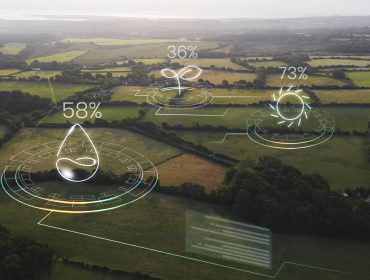
How technology is driving retail in Africa
A new EIU report says that smartphones could help expand Africa’s e-commerce market to US$75bn within the next decade.
August 2th, 2017 – Retail in Africa has largely been shaped over the years by a more informal shopping experience than that of the West. To this day, Africans prefer to use a network of physical stores, street traders and informal market sources for their purchases, which are predominantly carried out in cash. The relative lack of sophistication in the nature of many transactions in Africa reflects a paucity of infrastructure, as well as insufficient familiarity and trust with alternative sources.
That is changing, however. Increasing access to technology, via avenues such as smartphones, is helping consumers in previously hard to reach areas to access all manner of e-commerce opportunities, including emerging African fashion. A large number of malls have been built in Africa, and consumers flock to these in order to partake in a more engrossing shopping experience, which constitutes a day out for many families. This is leading to a “leapfrogging” effect where an increasing number of Africans are embracing the potential of e-commerce by using mobiles, rather than personal computers (PCs), for their online purchases.
Estimates as to the potential value of Africa’s e-commerce vary, but it could be worth as much as US$75bn per year within the next decade. However, several obstacles to e-commerce growth remain, including fear of fraud among African consumers, a logistics network beset by problems, the fragmented nature of African retail markets, a pressing need to improve telecoms network infrastructure and the entrenched problem of illiteracy among a significant proportion of the African population.
A recent Economist Intelligence Unit report uses bespoke EIU Canback data to highlight the countries and metro regions in the African continent with the biggest potential for e-commerce growth, while highlighting the trends and developments in the market. The scores marry the size of an addressable market (in terms of income level by household or individual) to a range of external-environment indicators relating to the overall business environment such as market opportunities, mobile subscriber penetration rates (per 100 people) and PC ownership (per 100 people).
Among the key takeaways from the analysis are:
Nigeria is in pole position to take advantage of e-commerce potential, on the basis of its high business environment opportunity potential
Estimates suggest that e-commerce sales in Africa could reach somewhere in the region of US$50- 75bn per year within the next 5-10 years
Smartphones are a gateway tool to the internet for Africans, especially in Nigeria, where the mobile penetration rate is forecast to rise from 103 per 100 in 2016 to 122 per 100 by 2021
Jumia and Konga are two of the biggest e-commerce companies in the continent, and in Nigeria nearly three-quarters of users access the Jumia platform via their mobile phones
Despite the opportunities, fear of fraud, poor transport and mobile infrastructure, supply-chain barriers and the fragmented nature of retail markets in Africa will hold back e-commerce growth in the continent.
Significant investment from both the public and private sector is needed to ensure obstacles are overcome and e-commerce can flourish in the region. The retail dominance of physical shopping outlets in Africa is unlikely to be toppled anytime soon. Consumers in African countries prefer to use a network of physical stores, street traders and informal market sources for their purchases, which are predominantly carried out in cash. But for those companies that are willing to adopt a long-term approach in shaping a burgeoning sector, the gains will be numerous.
A full copy of the report is available from http://www.eiu.com/public/thankyou_download.aspx?activity=download&campaignid=Africa2017
Source: Industry Briefing
Written by White paper
Photo: Economist Intelligence Unit
Related Post
OpenAI launches new AI Accelerator for...
OpenAI has launched the EU Economic Blueprint 2.0, introducing a new set of initiatives aimed at accelerating AI adoption across Europe and ...
SME climate finance stocktake: Turning ambition...
Small and medium-sized enterprises are vital to global climate action, yet access to green finance remains a major barrier to scaling their ...
Sustainability Meets Growth: A Roadmap for...
Small and medium-sized enterprises (SMEs) represent 90% of businesses globally and account for 40%-60% of business-sector greenhouse gas (GH...




